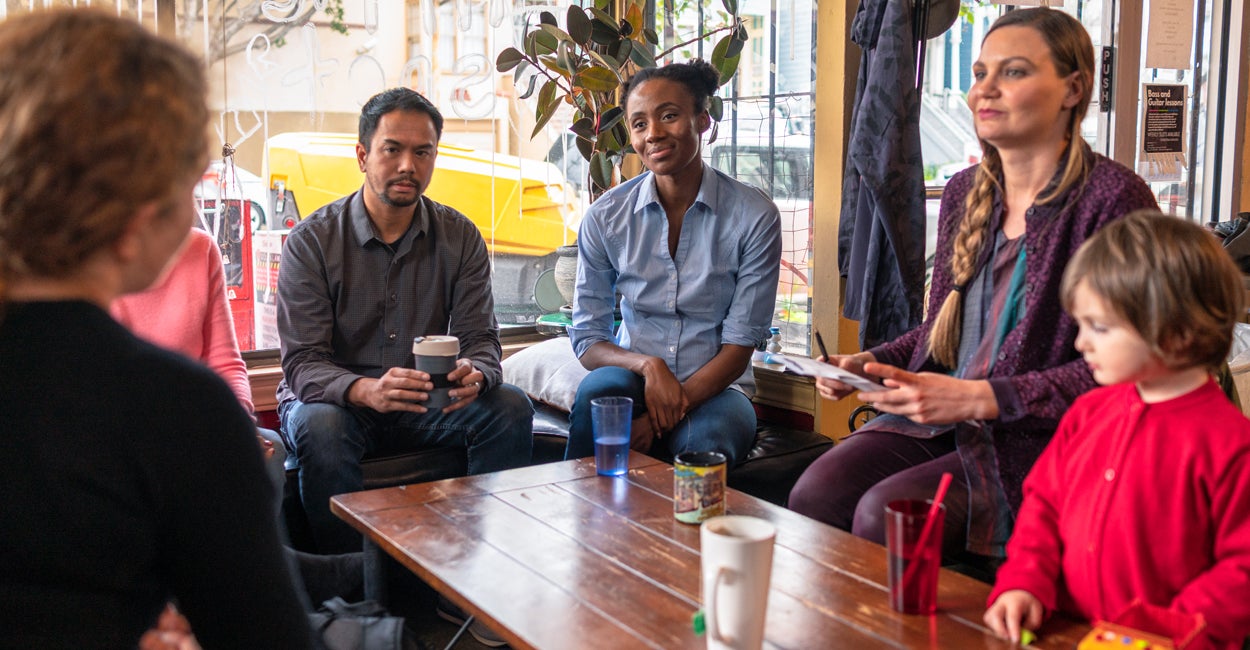Jan. 23-29 is National School Choice Week. This is the first of a five-part series of commentaries exploring the successes and challenges of educational choice and the people fighting to make it available to all American schoolchildren.
There’s a local coffee shop that has become a hub for people working from home who also want to get out a bit. As we all sit in front of our computers, taking calls and working from large community tables, it never fails that someone, usually a parent, sees my “Love Your School” logo—and asks me what I do.
“I help families learn about their education options. Do you have kids?”
The Daily Signal depends on the support of readers like you. Donate now
Without a second thought, a conversation has begun, and parents begin to share about their kids and their concerns, curious if I might be able to offer some hope for their situation.
I love these conversations—because I do have hope to offer. Its name? School choice.
Parents worrying about their children’s futures is nothing new, but the last two years have compounded those worries and added a dose of fear.
“Will my child ever catch up? Why are they still struggling so much? How can I afford all these extra tutors? I think they need an evaluation, but everyone says they’ll grow out of it. I’m so worried about my child’s future, I think about it all the time.”
In addition to new challenges brought on by COVID-19, parents also have concerns about what their children are being taught in the classroom.
Our nonprofit, Love Your School, recently helped the Neagra family, who were looking for a new school. When I asked why they were searching, the family explained that policies related to the handling of COVID-19 and “radical social education being taught to our elementary students” necessitated a change. They were so thankful that they could access an Empowerment Scholarship Account (also known as an “education savings account”) because they were in a D-rated school district.
They, like so many other families we work with, never knew until the last couple of months that they even had this option in Arizona. How many other families are drowning in the same worry and fear over their children’s futures but are left with no knowledge of their education choices at all?
Just a few weeks ago, another team member and I set up a table outside of a popular grocery store in South Phoenix, Arizona. “Hola! ¿Tienen niños?” we’d ask, as folks popped in for lunch at the taco shop just inside. The number of conversations we had on an average Tuesday lunch hour was almost unbelievable.
Sure, we had cold Jarritos in our branded koozies for the taking, but that was barely of interest. The possibility that we had something to offer these families who were clearly already thinking about their kid’s education was the draw. The thought that someone might listen to their story and provide ideas, options, and hope for their child’s current situation or struggle was the appeal.
Thankfully, hope is just what we had—along with some branded swag.
As we celebrate National School Choice Week, we should share with anyone that will listen the opportunities that school choice provides. We should plan events, make phone calls, and wear our yellow scarves to bring awareness to all of the incredible education options that families have access to across the United States.
I’m reminded of all the families I’ve met the last few years who felt they got a second chance for their kids because of school choice policies, my own included. I credit an education savings account to helping my two oldest boys get the therapy and curriculum they needed so they could learn to read.
I can’t imagine our lives or their future without these opportunities.
This National School Choice Week, when everyone is looking for hope, school choice advocates have the opportunity to give it. This week, and every week after.
Tomorrow: Heather Huddleston of the Bluegrass Institute explains how education opportunity accounts can benefit students in Kentucky.
The Daily Signal publishes a variety of perspectives. Nothing written here is to be construed as representing the views of The Heritage Foundation.
Have an opinion about this article? To sound off, please email letters@DailySignal.com and we’ll consider publishing your edited remarks in our regular “We Hear You” feature. Remember to include the URL or headline of the article plus your name and town and/or state.
































